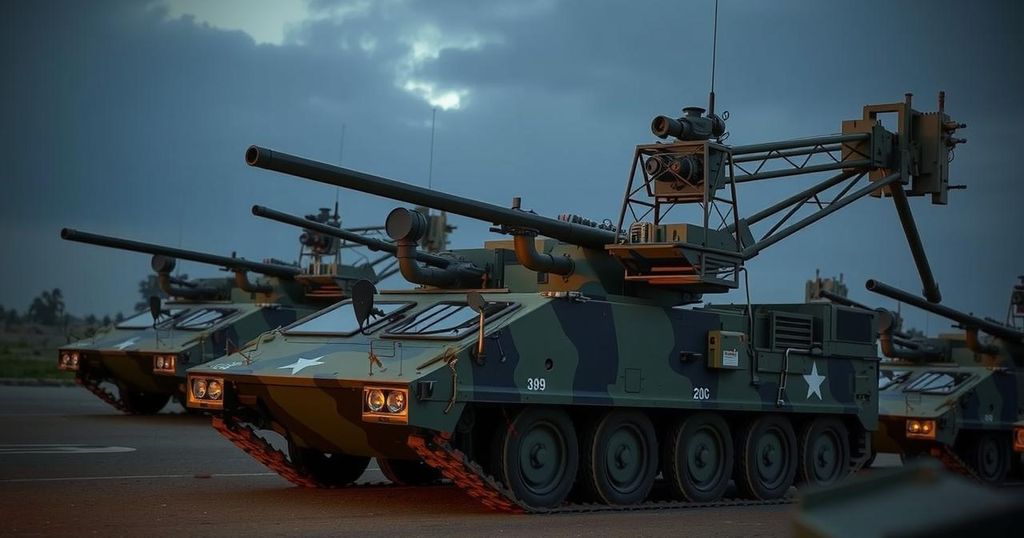Amnesty International’s recent report highlights the use of French military technology on UAE-manufactured APCs in Sudan, constituting a potential violation of the UN arms embargo. The active deployment of these systems by the RSF raises significant concerns about international arms trade and human rights. Urgent measures are urged to halt the supply of such weapons to prevent further civilian suffering in the region.
Amnesty International has unveiled a significant concern regarding the use of French military technology integrated into armoured personnel carriers (APCs) manufactured in the United Arab Emirates (UAE) for operations in Sudan. Specifically, the use of Nimr Ajban APCs equipped with the French-designed Galix defence system by the Rapid Support Forces (RSF) suggests a breach of the UN arms embargo on Darfur. This technology, designed to shield military vehicles from threats, is reportedly active in combat scenarios, raising serious implications for international arms trade regulations and human rights. According to Amnesty’s findings, the Galix system, a reactive defense mechanism produced by Lacroix Defence, is visible on several destroyed or captured Nimr Ajban APCs in Sudan. Agnès Callamard, the Secretary General of Amnesty International, emphasized that the deployment of this French weaponry in the conflict directly contravenes established UN arms embargoes. The French government is urged to halt further supplies to the UAE to prevent exacerbating the ongoing humanitarian crisis in the region. The UAE and France have maintained a robust defense partnership, highlighted by approximately EUR €2.6 billion worth of military exports from French companies to the UAE between 2014 and 2023. Despite the longstanding arms embargo imposed by the European Union on Sudan, the illicit transfer of military technology continues to flourish in this volatile context. Amnesty International also reiterated the responsibility of all defense companies, including Lacroix Defence and KNDS France, to uphold human rights through diligent oversight within their operations. Strengthening the monitoring and enforcement of the arms embargo and expanding its scope to cover all of Sudan has been recommended to mitigate further civilian suffering in the conflict.
Amnesty International’s investigation reveals a critical issue regarding the unlawful deployment of French military technology in Sudan, specifically through the use of Nimr Ajban APCs operated by the UAE. The investigation highlights how these APCs, equipped with advanced defensive systems like the Galix, are potentially facilitating human rights abuses in violation of established international arms embargoes. The context of this situation is tied to a long history of arms exports to conflict zones, despite global obligations to enforce prohibitions on such trades.
In conclusion, Amnesty International’s report underscores grave violations of international arms control regulations, emphasizing the detrimental impact of using French military technology in Sudan’s ongoing conflict. Urgent action from France and the international community is essential to enforce arms embargoes and prevent further humanitarian crises linked to armed conflict. The call for greater responsibility and due diligence from defense manufacturers is crucial for safeguarding human rights in conflict-affected regions.
Original Source: www.dabangasudan.org







